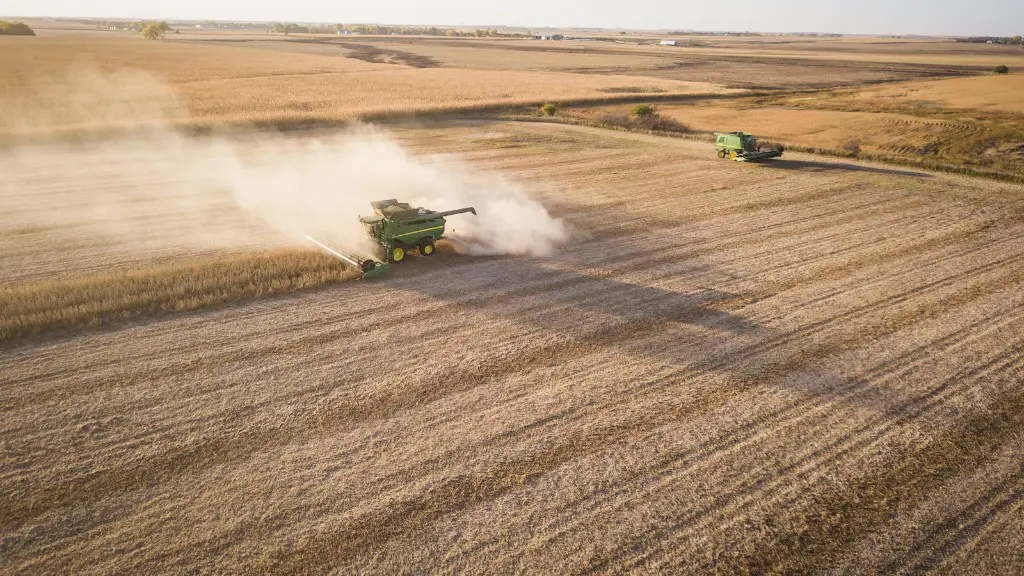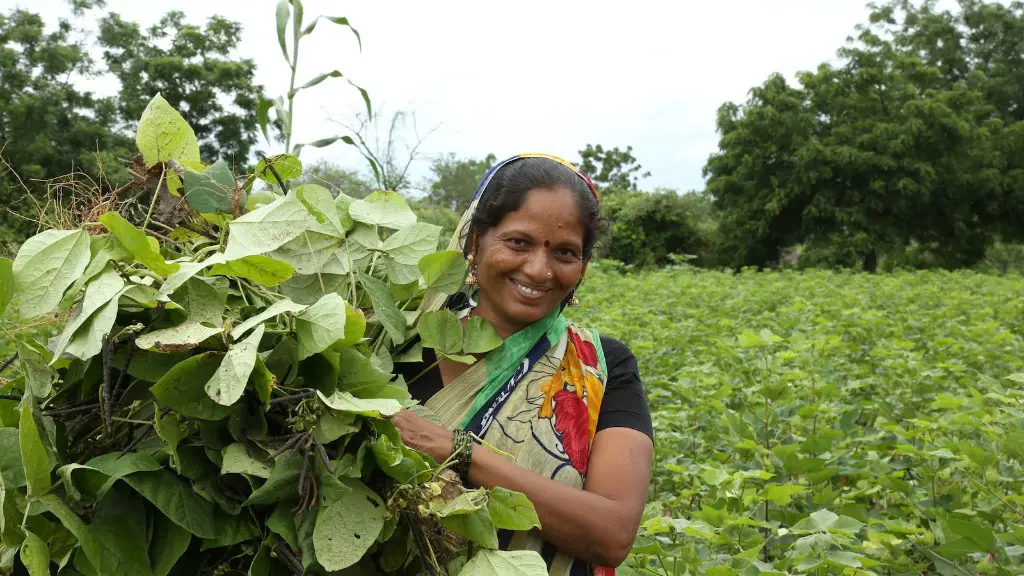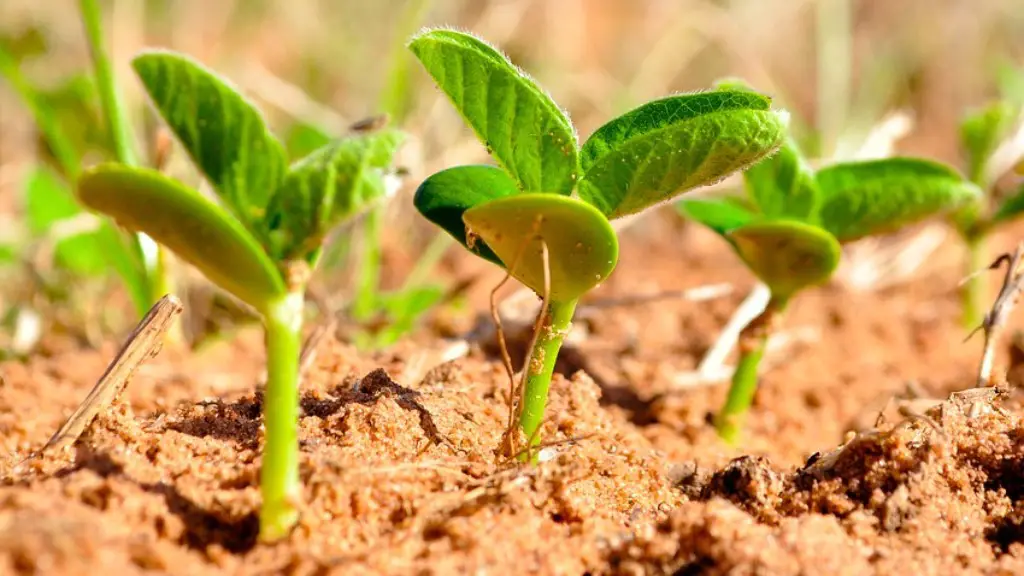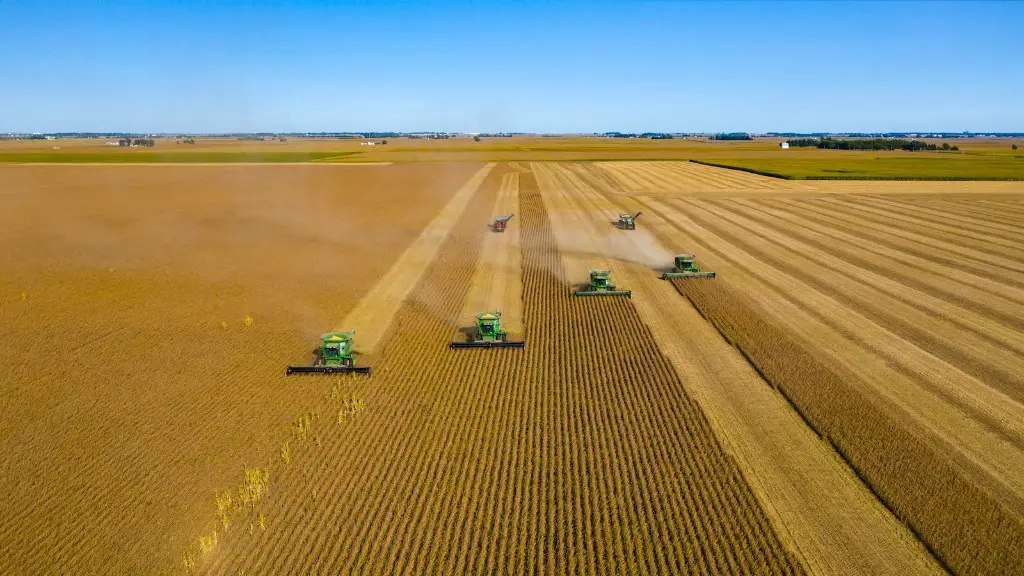Agriculture is the mainstay of the Nigerian economy, accounting for about 60% of the country’s GDP and employing about 70% of the workforce. However, the sector is beset with a number of challenges, which include:
-Low productivity: Nigeria’s agricultural productivity is among the lowest in the world. This is due to a number of factors, such as the small size of farms, lack of mechanization, and the use of traditional methods of cultivation.
-Lack of access to inputs: Farmers in Nigeria often lack access to essential inputs, such as improved seeds and fertilizers. This is due to the high cost of these inputs and the lack of credit facilities to purchase them.
-Lack of access to markets: Farmers in Nigeria often have difficulty accessing markets for their produce. This is due to the poor state of the country’s roads and lack of storage facilities.
-Dependence on rain-fed agriculture: Nigeria’s agriculture is largely dependent on rainfall, which is often erratic and unreliable. This makes agricultural production highly unpredictable, leading to food insecurity.
-Pest and disease problems: Pests and diseases are a major problem in Nigerian agriculture, causing substantial
There are many problems with agriculture in Nigeria. They include:
– poor infrastructure and lack of access to markets,
– weak linkages between producers and markets,
– droughts and flooding,
– soil degradation and depletion,
– deforestation,
– overgrazing,
– bush burning,
– pests and diseases.
What is the major problem of agriculture in Nigeria?
Poor seeds have been identified as the major challenge facing farmers’ cultivation of crops efforts and it reduces their yield per hectare Despite efforts of successive governments to give farmers access to improved seeds, farmers are still unable to access good and quality seedlings easily when the need arises. This is because most of the seed companies are concentrated in urban areas, making it difficult for rural farmers to access them. In addition, the government’s extension services are not reaching the farmers, and when they do, the information is not always accurate. As a result, farmers are not able to get the best seeds for their crops, which leads to lower yields.
Agriculture is the backbone of Nigeria’s economy, contributing an estimated 40% to the country’s GDP. However, the sector faces many challenges which impact on its productivity. These include a poor land tenure system, low level of irrigation farming, climate change and land degradation.
Despite the contribution of agriculture to the economy, the sector is plagued by many challenges which impact productivity. These include a poor land tenure system, lack of irrigation, climate change and land degradation. All of these factors impact the ability of farmers to produce enough food to meet the needs of the population. As a result, Nigeria must import a significant amount of food to meet the needs of its citizens.
What are the two problems of agriculture in Nigeria
Nigeria is facing a serious food crisis due to its growing population and the agricultural sector’s inability to provide enough food. The country must import most of its food to meet the needs of its people. This is a serious problem that must be addressed urgently.
The lack of access to modern machines and implements is a major problem for farmers. This affects the rate of production in their farms. There are two possible solutions to this problem.
Firstly, farmers should form cooperative societies to purchase modern machines and use them in turn. This would enable them to share the cost of the machines, and also ensure that the machines are used regularly.
Secondly, the government should encourage local fabrication of suitable intermediate machinery. This would reduce the cost of the machines for the farmers, and also create employment opportunities in the local economy.
What are seven problems facing agricultural extension in Nigeria?
Extension services in developing countries are often hampered by a number of factors. These include inadequacy and instability of funding, poor logistic support for field staff, use of poorly trained personnel at local level, ineffective agricultural research extension linkages, insufficient and inappropriate agricultural technologies for farmers, disproportionate Extension Agent: Farm Family ratio and more. As a result, extension services are often unable to adequately meet the needs of farmers and other rural stakeholders.
Nigerian agriculture is rain-fed, which is a challenge for farmers. They have to use more labor and traditional methods to farm. This makes it difficult to achieve high productivity. In addition, the use of fertilizer is low, which contributes to the loss of soil fertility.
What are 3 problems of agriculture?
In order to address the triple challenge of feeding a growing population while providing a livelihood for farmers and protecting the environment, it is necessary to set the table. This means creating a plan that takes into account the three challenges and how they are interconnected. Without a plan that considers all three challenges, it will be difficult to make sustainable progress in any of them.
There are two large problems facing agriculture in the modern world—the loss of agricultural land through erosion and manmade factors, and the increasing lack of diversity in crops. Agricultural land is being lost at an alarming rate due to factors such as deforestation, land conversion, and development. This is a major problem because it reduces the amount of land available for agriculture, which in turn increases the price of food and decreases food security. The lack of diversity in crops is also a major problem, as it increases the risk of crop failure and decreases the nutritional value of the food we eat.
What are the three main problems for agriculture
The highlands are facing a number of challenges in terms of their arable farm land. Firstly, there is a lack of available land in the highlands, meaning that farmers are often forced to use unsuitable land for farming purposes. This can lead to poor crop yields and poor animal husbandry. Secondly, land fragmentation is an issue in the highlands, with small parcels of land often being split up amongst different owners. This can make it difficult for farmers to access the land they need to farm effectively. Finally, climate change is also having an impact on the highlands, with the potential for more extreme weather conditions affecting the ability to grow crops and rear animals.
The country is a leader in various types of agricultural production, ranging from palm oil and cocoa beans to pineapple and sorghum. In fact, it is the largest producer of sorghum in the world, second only to the United States. Additionally, the country ranks fifth in the production of palm oil and cocoa beans. Consequently, the agricultural sector plays a vital role in the country’s economy and provides employment for a significant number of its citizens.
What are some major issues in agriculture?
The seven factors influencing the US farm economy in 2022 are:
1. Supply chain shortages and bottlenecks: One of the central headlines in 2021, shortages and bottlenecks in the supply chain are expected to continue well into 2022. This could lead to higher prices for inputs and finished goods, and potentially lower output as farmers struggled to obtain the inputs they need.
2. Inflation: Inflation is expected to rise in 2022, which would increase the cost of inputs and reduce farmers’ profit margins.
3. Interest rates: Interest rates are expected to increase in 2022, which would make borrowing for farm operations more expensive and reduce investment in the sector.
4. Severe weather: Severe weather conditions, such as droughts, floods, or hurricanes, could damage crops and disrupt farm operations.
5. Federal spending: The amount of federal spending on agriculture programs could affect farm income and profitability.
6. Legislation: Changes in agricultural legislation, such as the Farm Bill, could impact the sector in a number of ways, including farm subsidy programs and crop insurance.
7. Trade: Trade policy could have a significant impact on the farm sector, especially if there are changes in tariffs or
Soil fertility loss:
Soil is a key natural resource for agriculture. However, agricultural activities can lead to reductions in soil fertility. This can happen through soil erosion, as well as through the depletion of nutrients in the soil. This can have a negative impact on crop yields, and can ultimately lead to desertification.
Eutrophication of water bodies:
Eutrophication is the process by which water bodies become overloaded with nutrients, which can lead to an increase in algae and other aquatic plants. This can have a negative impact on the ecology of the water body, as well as on the quality of water for human use.
Deforestation:
Deforestation is often a side-effect of agriculture. This is because trees are cleared to make way for farmland, or for the construction of irrigation systems. Deforestation can lead to soil erosion, as well as to a reduction in the amount of carbon dioxide that is absorbed by trees. This can contribute to climate change.
Climate change:
Climate change is a major environmental effect of agriculture. This is because agriculture is responsible for a significant portion of greenhouse gas emissions. Agricultural activities can also contribute to climate change through deforestation and the use of irrigation systems.
What is the importance of agriculture in Nigeria
It is no secret that agriculture is the backbone of Nigeria’s economy. The sector currently accounts for over 30% of employment opportunities in the country and contributes more to Nigeria’s GDP than petroleum. Nigeria has a total agricultural land area of 708 million hectares, making it one of the largest countries in the world in terms of arable land. Crop production is the largest subsector of agriculture in Nigeria, followed by livestock and fisheries.
The Nigerian government has been working hard to diversify the country’s economy and reduce its dependence on oil. One of the key sectors that the government is betting on is agriculture. In recent years, the government has introduced a number of initiatives to boost the sector, such as the establishment of the Nigeria Incentive-Based Risk Sharing System for Agricultural Lending (NIRSAL) and the Anchor Borrowers’ Programme (ABP).
These initiatives have started to bear fruit, with agriculutral exports increasing by 28% in 2017. The government is hoping that these positive trends will continue and that agriculture will play an even larger role in Nigeria’s economy in the years to come.
The agricultural sector has played a vital role in the Nigerian economy, contributing an average of 24% to the country’s GDP over the past 9 years (2013-2021). This sector is the largest employer in Nigeria, providing employment for about 3497% of the country’s population. The data from the World Bank clearly shows the importance of the agricultural sector in Nigeria.
Why are Nigerian youths not interested in agriculture?
The major constraints hindering youth participation in agriculture were identified as inadequate credit facility, lack of agricultural insurance, poor returns to agricultural investment, lack of basic farming knowledge, and lack of access to tractors and other farm inputs. All of these factors make it difficult for young people to get involved in agriculture and make a success of it. However, with the right support and guidance, youth can overcome these obstacles and contribute to the agricultural sector.
The backbone of the Nigerian economy at independence in 1960 was agriculture. It accounted for over half of the Gross Domestic Product (GDP) (Olagunju, 2007). The sector contributes about 55% of gainful employment and almost 40 % of the share of GDP, before the discovery of oil.
What are the causes of failure in agriculture
Crop failure happens when the crops are completely wiped out due to some catastrophic weather conditions such as floods or droughts. On the other hand, abandonment is a decision made by the farmer to stop cultivation of the field or some part of the field post-planting even when it is still viable due to some reasons.
Fertilizers and manure can improve crop production and yields, and crop rotation can help preserve and improve soil health. The land use decree of 1978 can help to minimize problems of land tenure and farmer co-operative societies can help with the allocation of farm land.
Warp Up
In Nigeria, agriculture is the main source of income for many people, yet the sector is beset by a number of problems. One of the main problems facing agriculture in Nigeria is a lack of investment. The government has not been investing enough in the sector, meaning that farmers have not had access to the latest technology and equipment. This has made it difficult for them to compete with farmers in other countries.
Another problem facing agriculture in Nigeria is climate change. The country experiences periodic droughts, which have a devastating effect on crops. Climate change is also causing an increase in temperatures, which is leading to a decline in crop yields.
In addition, agriculture in Nigeria is also hindered by a lack of infrastructure. Many rural areas do not have access to roads, electricity, or other basic infrastructure. This makes it difficult for farmers to get their products to market.
Finally, agriculture in Nigeria is also hampered by corruption. corrupt government officials often demand bribes from farmers in order to approve their applications for loans or subsidies. This makes it difficult for small farmers to get the financial assistance they need to improve their operations.
The problems of agriculture in Nigeria are many and varied. They include environmental factors, such as soil fertility and rainfall patterns, as well as economic and social factors, such as access to credit and markets. Nigerian farmers face significant challenges in producing enough food to meet the needs of the country’s population. With a rapidly growing population and limited arable land, Nigeria must find ways to increase agricultural productivity and efficiency. improve access to markets and credit, and promote sustainable farming practices.





